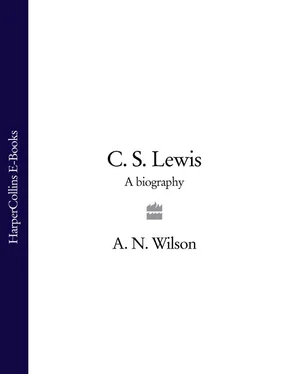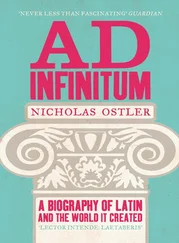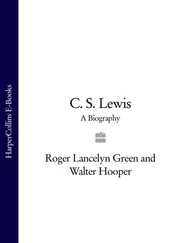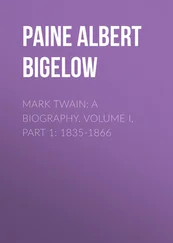A. Wilson - C. S. Lewis - A Biography
Здесь есть возможность читать онлайн «A. Wilson - C. S. Lewis - A Biography» — ознакомительный отрывок электронной книги совершенно бесплатно, а после прочтения отрывка купить полную версию. В некоторых случаях можно слушать аудио, скачать через торрент в формате fb2 и присутствует краткое содержание. Жанр: unrecognised, на английском языке. Описание произведения, (предисловие) а так же отзывы посетителей доступны на портале библиотеки ЛибКат.
- Название:C. S. Lewis: A Biography
- Автор:
- Жанр:
- Год:неизвестен
- ISBN:нет данных
- Рейтинг книги:5 / 5. Голосов: 1
-
Избранное:Добавить в избранное
- Отзывы:
-
Ваша оценка:
- 100
- 1
- 2
- 3
- 4
- 5
C. S. Lewis: A Biography: краткое содержание, описание и аннотация
Предлагаем к чтению аннотацию, описание, краткое содержание или предисловие (зависит от того, что написал сам автор книги «C. S. Lewis: A Biography»). Если вы не нашли необходимую информацию о книге — напишите в комментариях, мы постараемся отыскать её.
C. S. Lewis: A Biography — читать онлайн ознакомительный отрывок
Ниже представлен текст книги, разбитый по страницам. Система сохранения места последней прочитанной страницы, позволяет с удобством читать онлайн бесплатно книгу «C. S. Lewis: A Biography», без необходимости каждый раз заново искать на чём Вы остановились. Поставьте закладку, и сможете в любой момент перейти на страницу, на которой закончили чтение.
Интервал:
Закладка:
C.S. Lewis
A Biography
A.N. Wilson

For Ruth
Table of Contents
Cover Page
Title Page C.S. Lewis A Biography
PREFACE – THE QUEST FOR A WARDROBE
ONE – ANTECEDENTS
TWO – EARLY DAYS 1898–1905
THREE – LITTLE LEA 1905–1908
FOUR – SCHOOLS 1908–1914
FIVE – THE GREAT KNOCK 1914–1917
SIX – THE ANGEL OF PAIN 1917–1918
SEVEN – UNDERGRADUATE 1919–1922
EIGHT – HEAVY LEWIS 1922–1925
NINE – REDEMPTION BY PARRICIDE 1925–1929
TEN – MYTHOPOEIA 1929–1931
ELEVEN – REGRESS 1931–1936
TWELVE – THE INKLINGS 1936–1939
THIRTEEN – SCREWTAPE 1939–1942
FOURTEEN – SEPARATIONS 1942–1945
FIFTEEN – NARNIA 1945–1951
SIXTEEN – THE SILVER CHAIR 1951–1954
SEVENTEEN – SMOKE ON THE MOUNTAIN 1954–1957
EIGHTEEN – MARRIAGE 1957–1959
NINETEEN – MEN MUST ENDURE 1959–1960
TWENTY – LAST YEARS 1960–1963
TWENTY-ONE – FURTHER UP AND FURTHER IN
SELECT BIBLIOGRAPY
INDEX
ACKNOWLEDGEMENTS
About the Author
Sources
Praise
By the same author
Copyright
About the Publisher
–PREFACE– THE QUEST FOR A WARDROBE
A child pushed open the door of the wardrobe so as to hide in it. It was, however, no ordinary wardrobe. It was hung with fur coats. The child pressed on further through the dark recesses of the cupboard, pushing aside the soft folds of fur and discovering beyond them a new world. What crunched beneath the feet was not mothballs but snow. Lucy had discovered Narnia.
Millions of readers throughout the world have been thrilled by this moment in C. S. Lewis’s story The Lion, the Witch and the Wardrobe and have gone on to read the six other stories which he wrote about that other world behind the wardrobe, the world of Narnia. The powerfulness of the stories derives in part from the immediacy of Lewis’s rough-hewn style, but more, surely, from the fact that this image touches something so very deep in so many people.
‘If everything on earth were rational,’ someone remarks in Dostoyevsky’s novel The Brothers Karamazov , ‘nothing would happen.’ Nothing much would appear to have happened in the life of C. S. Lewis, who for his entire adult life was a scholar and teacher at Oxford and Cambridge in England. He did not mix in the world, with famous or fashionable people. His days were filled with writing and reading and domestic chores. And yet books about him continue to pour from the presses on both sides of the Atlantic.
This phenomenon can only be explained by the fact that his writings, while being self-consciously and deliberately at variance with the twentieth century, are paradoxically in tune with the needs and concerns of our times. Everything on earth is not rational, and attempts to live by reason have all failed. The world has changed more radically in the last hundred years than in any previous era of history. Old values and certainties have been destroyed; religions have collapsed. In such a world, a voice which appears to come from the old world and to speak with the old sureness will have an obvious appeal. Lewis’s attempts to justify an old-fashioned Christian orthodoxy have made him an internationally celebrated and reassuring figure to those believers who have felt betrayed by the compromises of the mainline Christian churches. Lewis, to the amazement of those who knew him in his lifetime, has become in the quarter-century since he died something very like a saint in the minds of conservative-minded believers.
It is not the rational Lewis who makes this enormous appeal, the Lewis who lectured on medieval and Renaissance literature with such superb fluency and wide-ranging erudition to generations of English students. It is the Lewis who plumbed the irrational depths of childhood and religion who speaks to the present generation.
Though all Freud’s theories about the origins of consciousness may be disavowed, this remains the century of Freud. We have learnt that our lives are profoundly affected by what happened to us when we were very young children, and that wherever we travel in mind or body we are compelled to repeat or work out the drama of early years. If this were a work of psychoanalysis or literary theory, I should feel compelled to test The Lion, the Witch and the Wardrobe by the theories of the human mind which have been adopted and discarded by psychoanalysts and philosophers in the last hundred years. But these are not areas which admit of rational enquiry, even if I were qualified to explore them, and Lewis himself would have been equally anxious to remind us of the whole European philosophical tradition since Plato which has attempted in the language of metaphysics to account for our sense that we do not belong in this world, that we are pilgrims and strangers here, homesick for another place where one day we shall be truly ourselves.
Two journeys, made in the course of my researches for this biography, have brought home to me more vividly than any others the strange nature of my task.
The first was to Belfast in Northern Ireland. For those who are not Irish, their first glimpse of modern Belfast is a shock. Much of its ancient prosperity, derived from its magnificent shipyards, has gone. There is widespread unemployment and poverty. Walking the streets of the working-class districts of the city one is confronted by distressing images of human irrationality. Even the kerbstones shriek of their religious and political allegiance. Protestant, Unionist streets are painted red, white and blue in praise of the Queen and the Reformation. Catholic, Nationalist streets are daubed white, green and orange for Ireland and the Pope. In no place on earth does it seem truer that Christ came to bring not peace, but a sword. The post offices and police stations are barricaded like fortresses. There is no prospect here of the rational prevailing. Every week that passes, a bomb explodes or a gun is fired because of ancient, atavistic religious prejudice.
It would not be the best place in the world to take a non-believer in the hope of persuading him or her that Christianity was a very ennobling belief, but it is a very good place for a Christian to recognize what a small part reason plays in most human lives; and it might very well prompt the visitor, and even more the resident, to hope that some form of Christianity could be expounded which was the agreed and good thing which all Christians hold in common, the set of unchanging and saving beliefs which Lewis named Mere Christianity .
Driving out of the beleaguered city into the suburbs is immediately to encounter a different, happier world, a prosperous middle-class place which knows no violence; big, comfortable houses built to sustain and celebrate the simple happiness of family life. Down one such leafy road, you will find the house built by a Belfast police solicitor named Albert Lewis in 1905. It was in this lumpy Edwardian villa that C. S. Lewis and his brother Warren spent the most crucial period of their lives. Climbing up the small back staircase, I reached a landing on the second floor of the house, and there at the end of the corridor I found the ‘Little End Room’ where the boys had escaped from the grown-ups and indulged their childhood games.
For Lewis himself, it was not a house with happy memories, for it was here that the catastrophe of his life took place: the death of his mother on 23 August 1908, when Lewis was nine years old. The loss was something which he bottled up within himself, unable to appease it through the emotionally stultifying years of boarding-school education in England. In terms of his emotional life, the quest for his lost mother dominated his relations with women. His companion for over thirty years was a woman old enough to be his mother; and when she died it was not long before, like a Pavlovian dog trained to lacerate his heart with the same emotional experiences, he married a woman whose circumstances were exactly parallel to those of his own mother in 1908 – a woman dying of cancer who had two small sons.
Читать дальшеИнтервал:
Закладка:
Похожие книги на «C. S. Lewis: A Biography»
Представляем Вашему вниманию похожие книги на «C. S. Lewis: A Biography» списком для выбора. Мы отобрали схожую по названию и смыслу литературу в надежде предоставить читателям больше вариантов отыскать новые, интересные, ещё непрочитанные произведения.
Обсуждение, отзывы о книге «C. S. Lewis: A Biography» и просто собственные мнения читателей. Оставьте ваши комментарии, напишите, что Вы думаете о произведении, его смысле или главных героях. Укажите что конкретно понравилось, а что нет, и почему Вы так считаете.












